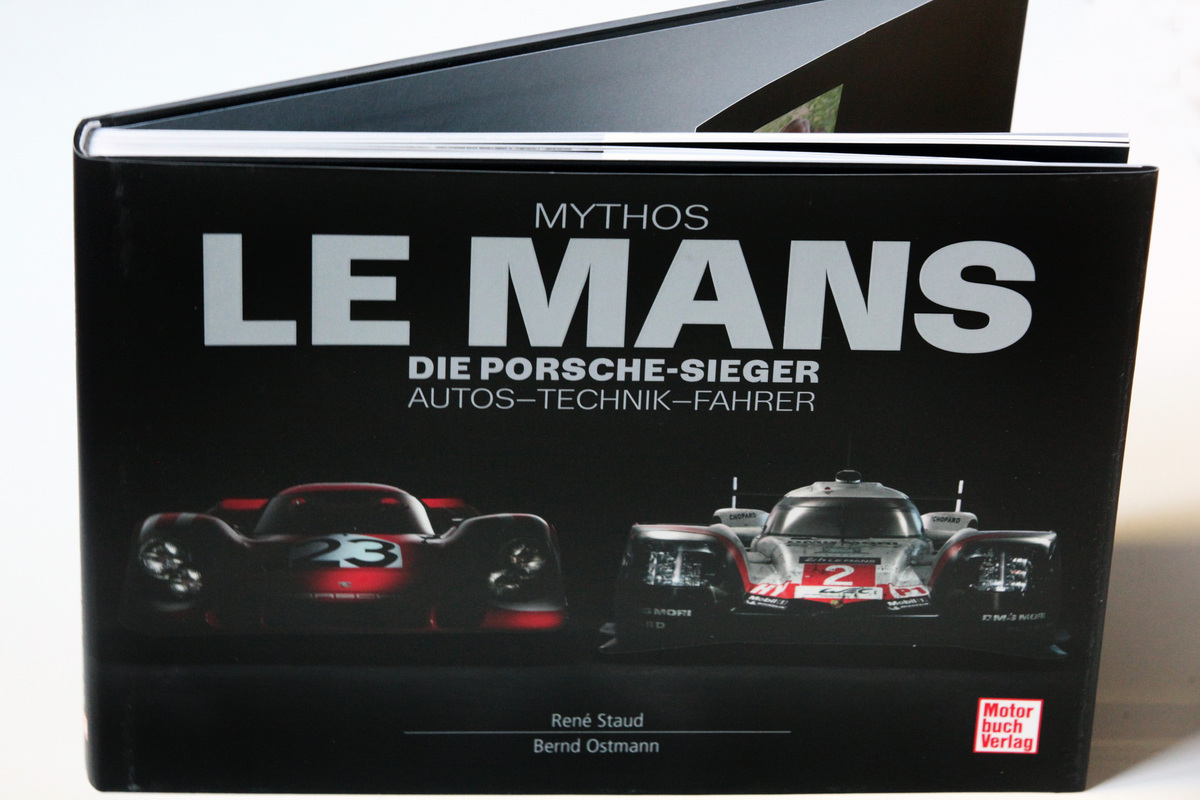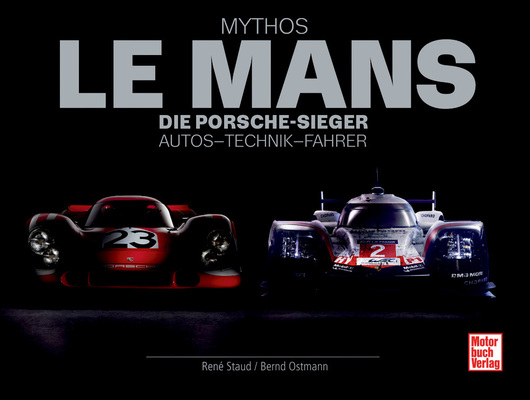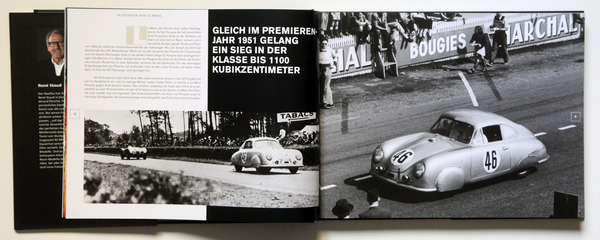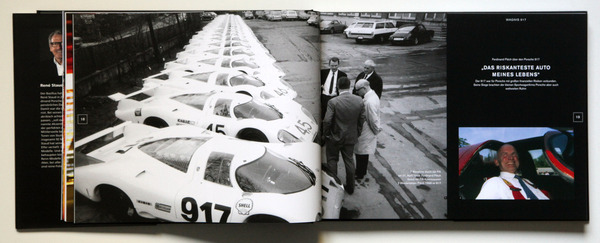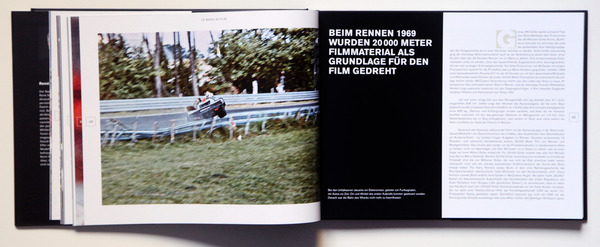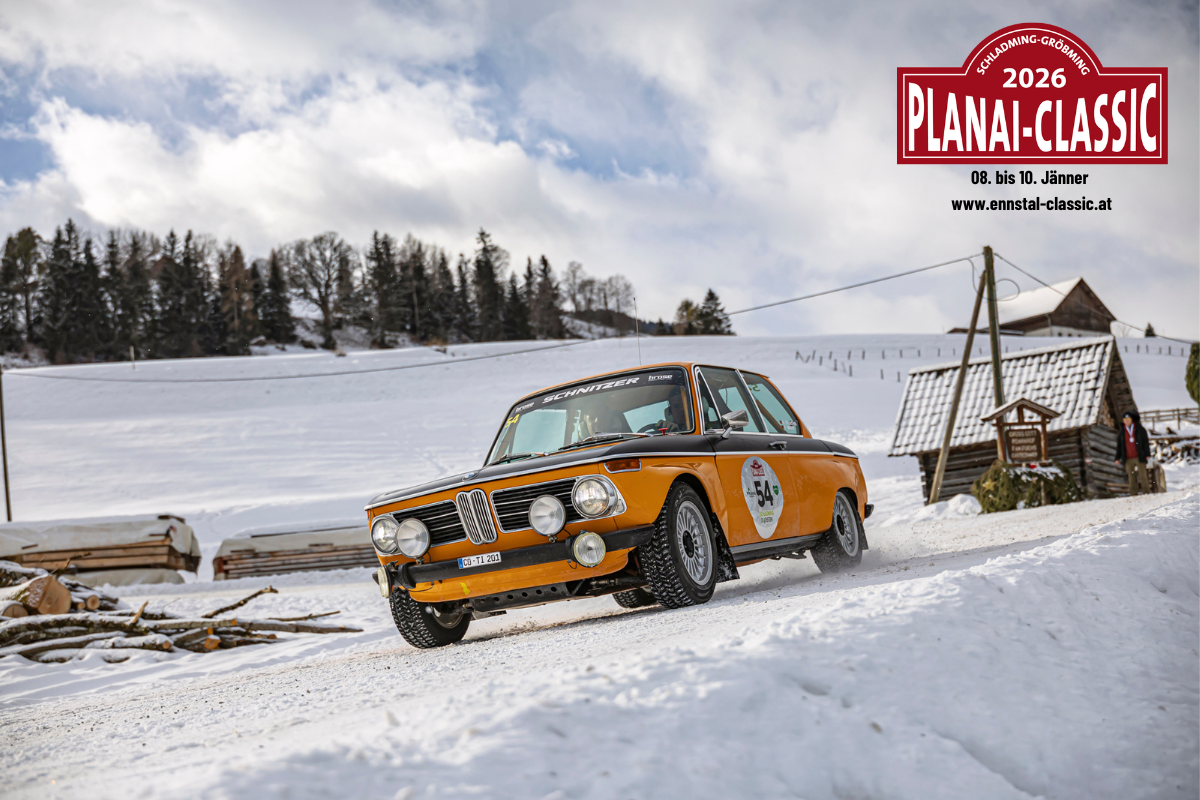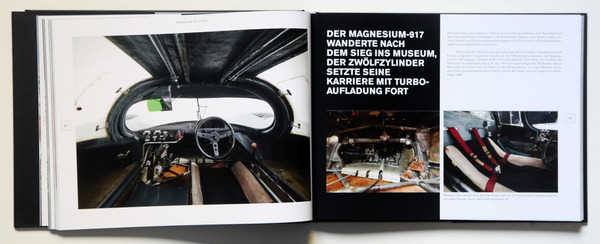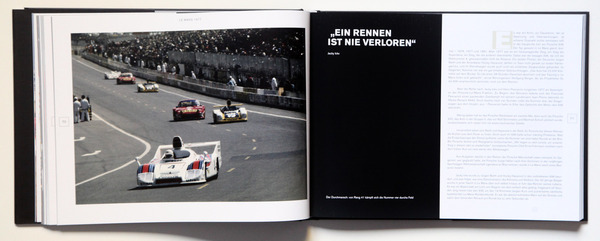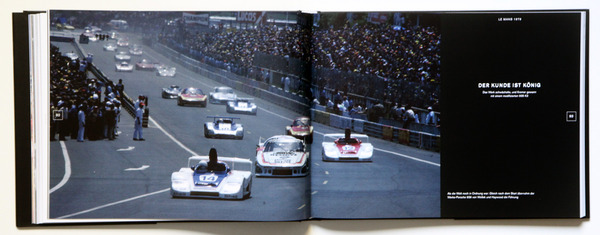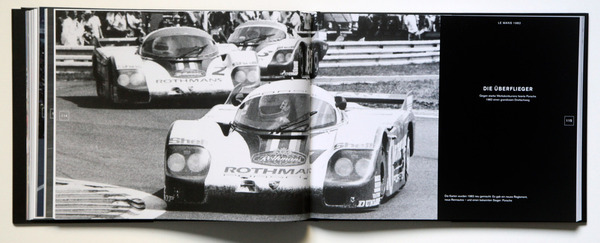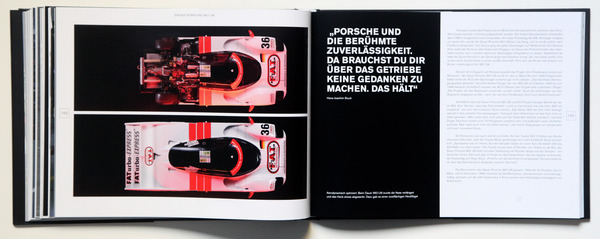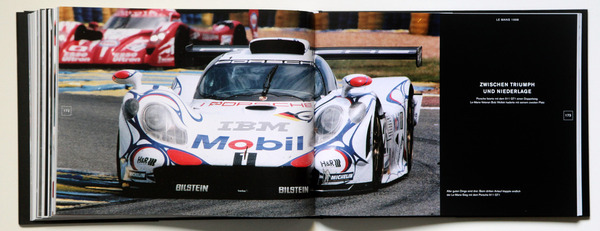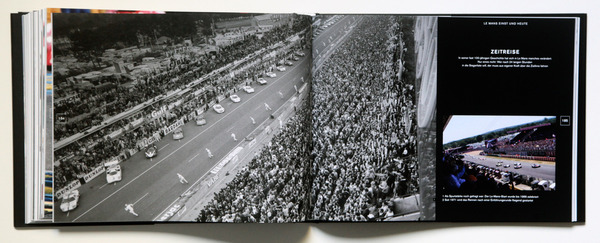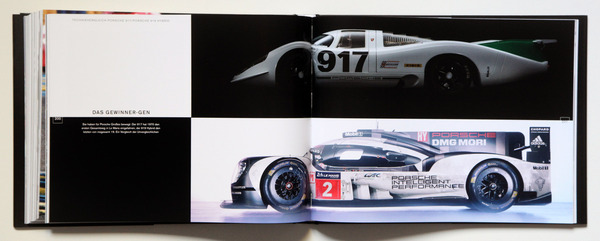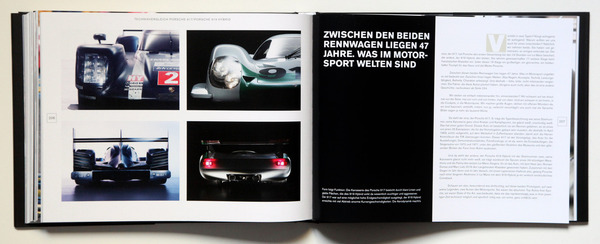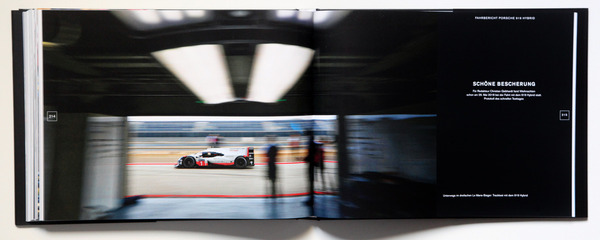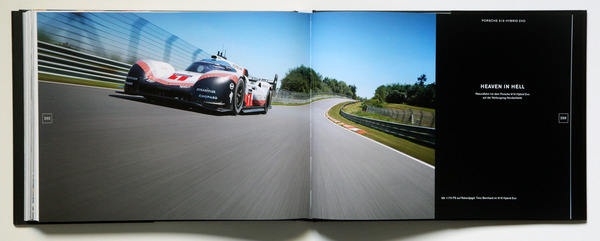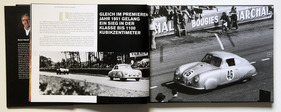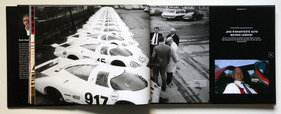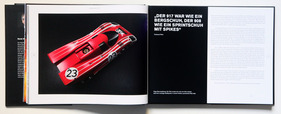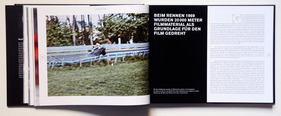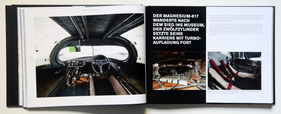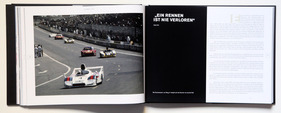Porsche and Le Mans, Le Mans and Porsche. A uniquely interwoven formula for success for decades. Here the great endurance classic at the Sarthe, there the small sports car manufacturer from Zuffenhausen.
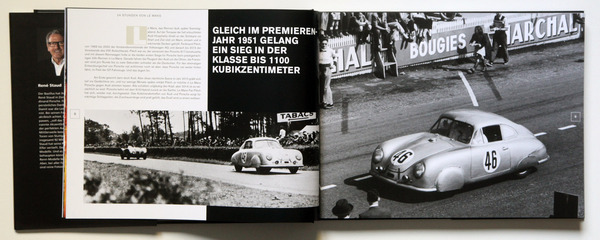
From the first start of a Porsche 356 SL aluminum coupé at Le Mans, it took until 1970 before the first overall victory was achieved.
This was followed by 18 more successful first crossings of the finish line in the prestigious race. Some victories were commanding, some tragic, some lucky. Remember the retirement of the Toyota TS050 Hybrid. Kazuki Nakajima is stranded on the start-finish straight after 23 hours 55 minutes in the lead with technical problems. Toyota rolls off the track, a disaster - Neel Jani races to victory. We will be talking about this for a long time to come.
Well-established author duo
The book by René Staud and Bernd Ostmann is dedicated exclusively to the history of Porsche at Le Mans since 1970. 240 pages are devoted to the cars, drivers, constructors and mechanics as well as places and situations. The result, it should be said at the outset, is an incredibly vivid picture of this journey through time into Porsche's glorious past.
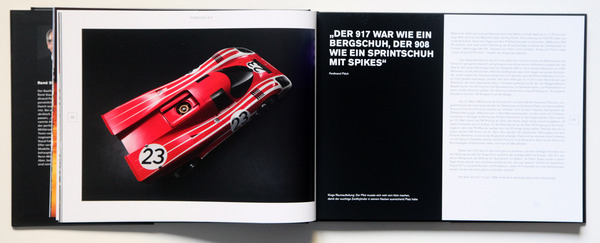
Staud, the meticulous photographer, has probably had most of the Porsche models professionally in front of his lens and skillfully stages the winning cars for the book.
Ostmann, the former editor-in-chief of auto, motor und sport, not only knows Porsche from his Stuttgart neighborhood, he was also present at many a victory at Le Mans and was not afraid to put Le Mans-winning cars through their paces in racing overalls.
To finish first, you have to finish first
Porsche's victories are no coincidence. Anyone who wins nineteen times at Le Mans can't just be lucky, but can talk about luck. Even the first overall victory in 1970 went to the supposedly weakest but probably most reliable vehicle from the Porsche armada that competed. Hans Herrmann and Richard Atwood secured Porsche's first overall victory at Le Mans with restraint, a careful driving style and just the right amount of luck. At the same time, Ferdinand Piëch, Technical Director at Porsche, was able to triumph. His courage and determination to have 25 examples of the 917, which had been created from the drawing board in a very short time, homologated a year earlier had paid off.
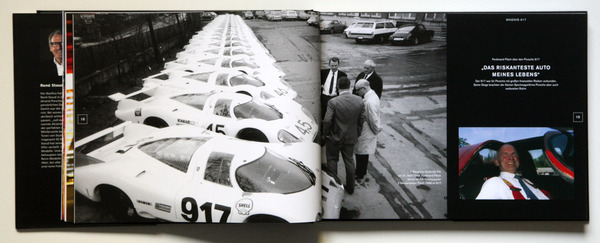
Porsche had gone from class winner to overall winner. Where Jaguar, Maserati, Ferrari and Ford had previously stood in front of the winning sun, Porsche now took its place. This was to be repeated 18 more times.
Diverse journey through time
However, Staud and Ostmann do not list 19 overall victories by year in their book, but provide an atmospheric picture with a lot of contemporary flavor. Selected victories from the decades with selected vehicles are examined from various angles.
Sometimes, as with the 917, the focus is on the development history, then the engine developers have their say. Elsewhere, it is the drivers, mechanics and pit strategists who give an impression of how things went back then, why the crew won and where victory sometimes hung by a thread.

This diverse approach reveals the effort the authors put into this book. The research and the number of interviews alone deserve a lot of respect. The well-founded text, the careful selection of images from contemporary pictures, coupled with current pictures of contemporary witnesses being interviewed, round off the book's strong impression.
The Le Mans legend
Even the first class victory with the Gmünd Coupé in 1951 came at a high price. Barely established as a company, the young sports car manufacturer ventured into Le Mans and won the 1100cc class with the small 356, finishing 20th overall. Le Mans was now an integral part of Porsche's racing calendar.
The cars were traditionally prepared in the garage in Teloché until the 1980s and chauffeured from there to the race track on their own axles. Where drivers used to take a nap on an air mattress on the ground between stints, today motorhomes with physiotherapists are waiting. The pit lane is separated from the race track, and the Le Mans start has been abolished for 50 years.
Nevertheless, this book puts the reader on the trail of the Le Mans legend and thus also on the road to success of Porsche victories.
Porsche successes in book form
The number of victories makes Porsche the most successful brand at Le Mans today. Leaving its former opponents far behind. Some of them no longer even exist. In this book, the former makers and drivers have their say.
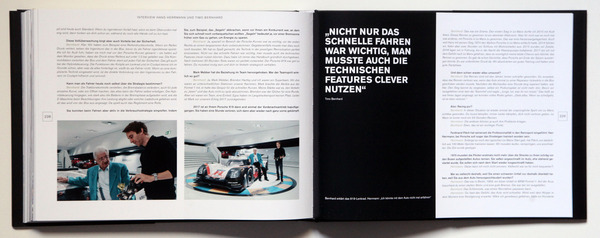
The racing battles come to life, as do the problems in development and the strategic decisions in the pits. The technology of selected winning models is explained, as are personal driving impressions of winning cars. In addition, the Porsche models are presented in a unique way by René Staud.
Give or receive a gift
What isn't written about Porsche? What isn't published about the 24 Hours of Le Mans? Of course, there are also some good books, and here is another one.

The focus on the victories and the restriction to selected vehicles may sound like a reduction at first, but it quickly becomes a revelation because it allows a depth to be expressed that would otherwise only have been possible in several volumes. Readable texts, gripping interviews in which even those from whom one otherwise hears nothing have their say: aerodynamicists, strategists, mechanics. It spans the arc from the first victory with the Porsche 917 in 1970 to the last success with the 919 Hybrid in 2017.
At EUR 79.00, the book is absolutely justified in terms of its scope, value and depth. If you buy it, give it to yourself, if you don't want to buy it, give it to yourself. Joy is already promised.

Bibliographical information
- Title: The legend of Le Mans - The Porsche winners. Cars - Technology - Drivers
- Authors: René Staud / Bernd Ostmann
- Language: German
- Publisher: Motorbuch
- Edition: 1st edition, October 2020
- Format: 230 x 305 mm, hardcover with dust jacket
- Scope: 240 pages, 200 photos (color and b/w)
- ISBN: 978-3-6130-4344-2
- Price: EUR 79.00
- To order: Online at amazon.de, online at Motorbuch Verlag or in a well-assorted bookstore
